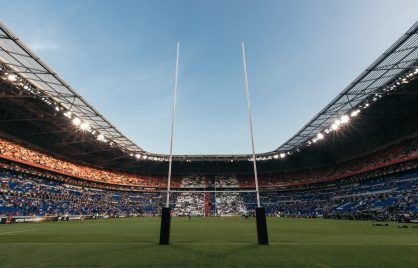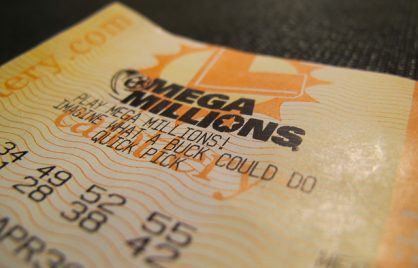A Complete History of Betting Shops in The UK

In 1960, the landscape of betting within the UK changed forever when the British government introduced the Betting and Gaming Act that allowed betting shops to officially open up for business across the country from 1st May, 1961. Things have never been the same since.
How It All Began
The first betting shops opened on that first day of the fifth month 55 years ago and they continued to open up at a rate of 100 every week. After six months of the new laws coming into force there were 10,000 betting shops in operation. The face of the gambling industry within the UK changed over the course of a matter of months.
Bookmakers that were awarded licenses to operate within the UK from the Racecourse Betting Control Board were allowed to accept bets at “tote odds” which was when the amount of the bet placed was divided up amongst the winning bets.
It was hoped that the new laws would help towards getting illegal betting off the streets and eradicate the activity used by bookmakers of sending physical runners to collect money owed by punters. This practice contributed to criminal acts and extortion which needed to be stamped out.
At the time of the new act being passed, the only way punters could place an off-course bet was by proving they had enough credit to set up a new account with a bookmaker and then placing the bets by telephone.
Betting Becoming Mainstream
Undoubtedly, the biggest change that occurred under the new law changes was that betting went from being a seedy and taboo activity to becoming a more socially accepted recreation. It shifted from the underground to the mainstream.
Betting shops provided a safe and regulated haven for punters to place their bets without the risk of being embroiled in a criminal circle which was a frequent occurrence when betting was not regulated on the streets.
There was still a small stigma associated with betting shops. The premises had to darken windows and were not allowed to advertise or market themselves. However, they were out in the open and betting activity could now be monitored which made betting a far more popular recreation than it was before the 1960s.
Ladbrokes and William Hill were the two big names in the 1960s and their expansion during this period was revolutionary. They managed to swallow up a number of small betting shop businesses such as Fred Parkinson, JJ Simonds, and Ken Munden. They appealed to the working class and set the tone for the industry that would remain in place for the next five decades.

Out of the Dark and Into the Light
Things remained relatively unchanged until 1986. Changes to gambling legislation saw betting shops given permission to overhaul their design and interior. No more would betting shops be considered dark and dingy places. They could now serve hot and cold beverages, paint their walls, provide seating, and install televisions.
This era of betting saw four brands take firm control of the market. William Hill and Ladbrokes continued to lead the way but they were now joined by the giants of Coral and Mecca as a new age of gambling hit the UK.
It was these four brands that were responsible for one of the biggest changes to gambling law that would affect the punters directly. The bookies put pressure on the government to eliminate a tax charged on individual bets. This was charged at a rate of 10% on all winnings. It took years of lobbying from the bookies to get the government to abolish this tax and in 2002 all the hard work finally paid off and the tax became extinct. It was a landmark moment with many other countries and jurisdictions still maintaining similar taxes.
The Dawn of the Premier League
Another monumental moment for betting shops within the UK was the dawn of the Premier League in 1992. The re-branding of the top flight of English football not only completely changed the face of football with television rights money giving clubs the chance to buy more high-quality players and update their facilities, but it was also a game-changer for betting across the country as more people than ever started to bet on football.
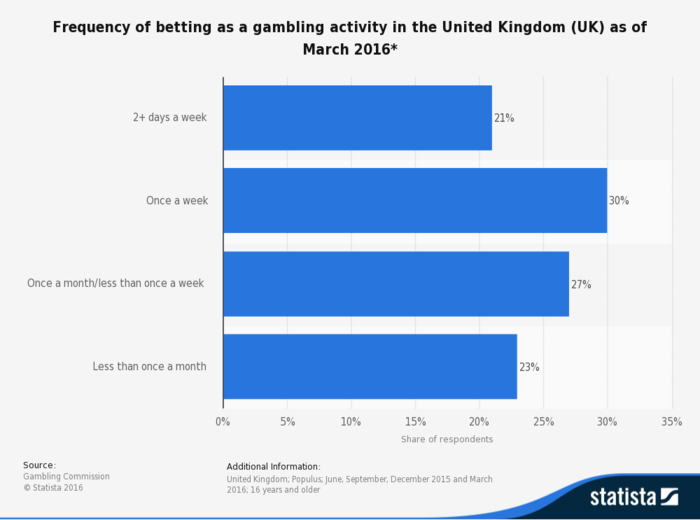
Only punters from the UK were initially permitted to bet on the Premier League games and originally it was ruled that punters had to place a minimum of three bets. However, the rules were relaxed after a short period of time and betting on single matches was given the green light.
It was the first step of taking betting shops into new territory. Fan obsession with the Premier League led to a demand for more betting markets. The emergence of gambling online saw bookies satisfy demand from punters for betting on each and every little detail in games such as corners, yellow cards, the minute of goals being scored, and even throw-ins. This filtered through to the betting shops that also had to provide the same markets within their shops.
This is something that has gone on to spread across the globe to other markets not only within football but within other sports. It gave rise to in-play betting and cash out. The introduction of those two features has not only proved popular online but within the betting shops as bookmakers have done their best to ensure that land-based punters do not miss out on the benefits that online customers enjoy.

The year 2001 saw one of the most controversial introductions to hit betting shops. A range of electromechanical devices called fixed-odds betting terminals (FOBTs) were installed and the debate about how damaging they are to both the industry and punters has raged on ever since.
Minimum bets on these machines must be £1 but the largest single payout cannot breach the £500 mark. The speed at which punters can place bets has been the main focus of negativity surrounding the machines with critics claiming it encourages gambling addiction and can destroy whole communities by sucking players in.
It was also alleged that the machines were being used to carry out money-laundering. It was claimed that cash would be paid into the machines with low-risk bets being placed. The winnings would then be withdrawn in the form of a voucher that would then be exchanged for cash at the betting shop counter.
Dubbed as the “crack cocaine of gambling”, bookmakers finally decided to take action in 2014 and under the umbrella of the Association of British Bookmakers made the decision to allow punters to set money and time limits on FOBTs.
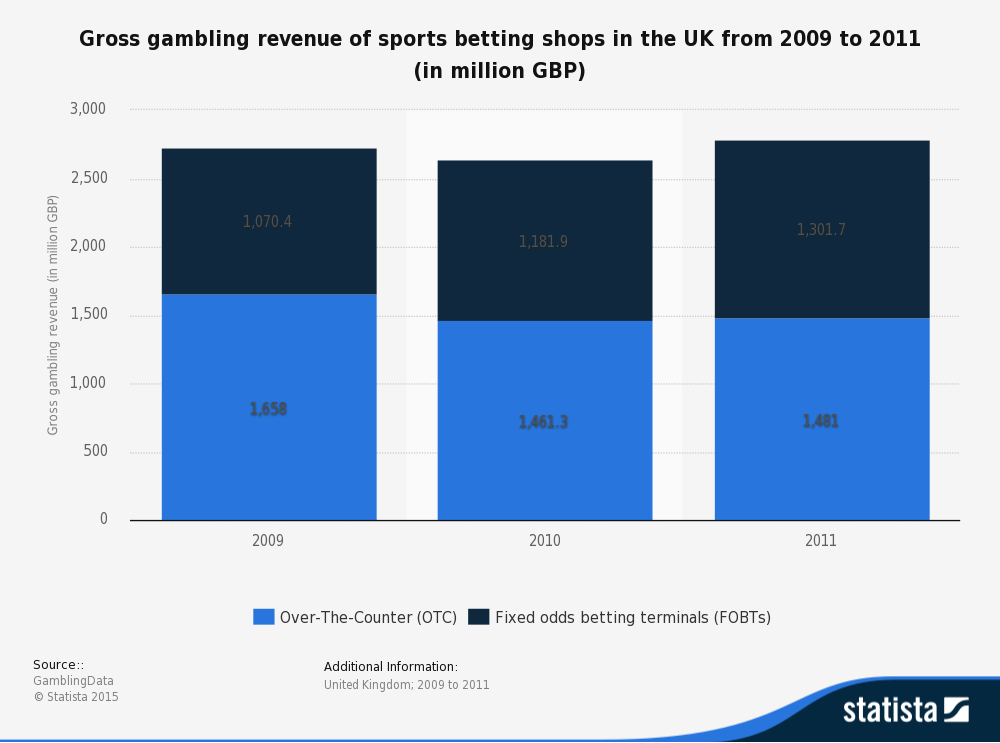
Going Offshore
At the turn of the century, bookmakers were starting to offer online sites for punters to place bets on the internet without having to leave the comfort of their own home. This led to a change in business management by a number of the big-name branded betting shops.
One of the pioneers of this was Victor Chandler. The eponymous bookmaker made the decision to move his entire operations offshore to Gibraltar. This made their players’ bets offshore making them tax-free and that was a key factor in the British government changing its stance on gambling tax. On December 1, 2014, the Gambling (Licensing and Advertising) Bill meant that taxation of online gambling was now altered from a ‘place of supply’ to a ‘point of consumption. This meant offshore bookies were no longer immune from the grasp of the UK tax laws.
It is a law that is continuing to have an impact on betting shops today. A number of the biggest branded bookmakers have been forced into merging with Betfair and Paddy Power leading the huge mergers. Ladbrokes and Coral are two other bookies that have been at the centre of a proposed merger but they have been told that they must sell betting shops if the deal is to be concluded. It is a trend that will certainly become more common in the future as bookmakers struggle to cope financially with the new tax laws imposed by the British government.
Recent figures also suggested that the value of betting shops is on the decrease. Betting shop value had appeared to hit a high in 2005 when William Hill bought out Stanley’s betting shops at a price of £807,000 per shop. It was recently speculated that Boylesports intended to purchase 360 betting shops from Ladbrokes and Coral at a price of £277,000 per shop. The value of the betting shops is clearly in steep decline if those figures are true.
The Future In Their Hands
Online gambling has had a massive impact on betting shops. The most recent law changes has added even more pressure on bookmakers to adapt to their new environment. Whether that be merging with a rival competitor or offering a more high-brow venue to keep the land-based ventures modernized.
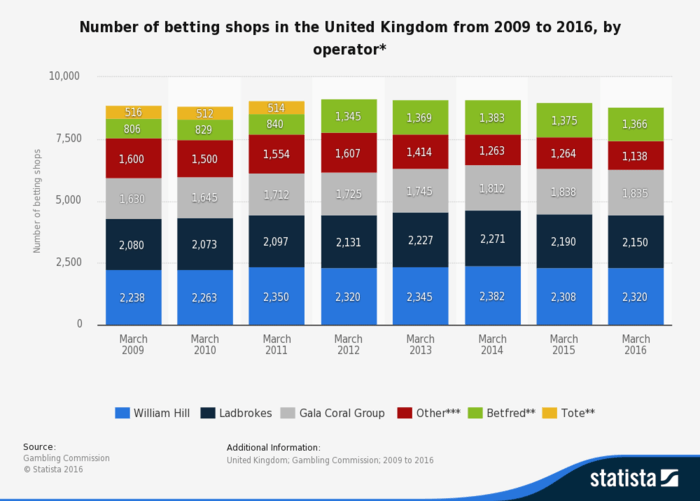
Betting shops could take the lead from casinos that have seen their land-based premises take a hit with the rise of online casino gaming. The customer experience inside the betting shops will now become a priority for the bookmakers as they try to avoid the prospect of betting shops becoming extinct as online sports betting continues to rise.
It is an issue that shows no signs of going away with mobile gambling the next step. If the bookmakers can come up with more creative and ingenious ways to draw the punters in then the future of the betting shops will remain as bright as they always have but these are troubling times for the betting shops. There are currently 9,000 betting shops within the UK so they remain commonplace, but that could change very quickly with figures showing the percentage of betting shops in the UK has decreased by 43% since 1970. They might not be extinct but they are certainly on the brink of becoming an endangered species.
